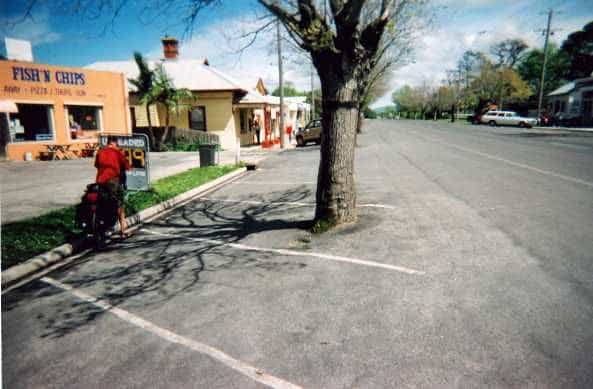Originally Posted by
Machka
It's happening.

Having such a tree in every other parking spot like that would indeed be good. Then, maybe some treed islands/medians in the center lane as well . . .
From my experience, the problem with people who tell others what they should do or what should happen is that those people usually have no clue whatsoever about what's really going on, and their "shoulds" are usually so far off the mark it just leaves me shaking my head in disbelief.
So it's a starting point for a two-way dialogue.
One particular line from The Grinch Who Stole Christmas (Jim Carrey) always leaps to mind when I've got one of those "should-ers" yapping away in front of me.

It helps me nod and smile.

So your saying that should-ers should 'should' others less? What gives you the right to tell them what they should do if you don't like them doing it?
BTW - if you've studied communication at all, you should (heh heh) use could or would rather than should. As in "would this help?" or "could you try?" ... if someone comes to you for advice.
Yes, of course but once you see through that little rhetorical nuance, it doesn't really matter because they are basically just ways of conveying the same idea.
Originally Posted by
jon c.
If you want this communication to have any impact, it has to contain useful and persuasive information. The constant refrain that there's a giant conspiracy against car free alternatives will convince no one to use their car any less. You have to present alternatives that work. Which is where personal experience comes into play. If you can tell people "I do this every day and here's why it is a better alternative," you have a much better chance of achieving real change.
I'm not trying to marketing LCF, per se. I am analyzing what is going on with the culture and why all these transportation options are possible and even deployed by investors and then what happens to stifle their widespread adoption. If there's not a conspiracy behind it, it sure could pass for there being one.
In the case of scooters, they really don't seem to most people to be a viable alternative. At least not as they are currently being marketed.
You could start with an SUV and engineer smaller or start with an electric scooter and engineer larger. Either way the challenge is to find the smallest possible sized motor-vehicle that uses the least pavement and encourages the least sprawl and thus driving-dependency. The problem with making smaller cars is that things like crash protection regulations inhibit innovation. Tiny cars like the Tata aren't only unpopular because of stylistic norms more or less governed by the industry, but they are also just regulated out of the market.
The operations that have been been launched in the last year or two seem intended only to make money for those who are introducing them. The possibility of long term profit seems slim at best and the potential utility of the vehicles for the majority of commuters appears to be very limited. People are not arriving at this conclusion because they want to protect the auto industry. It's simply a badly flawed business model.
I point this out all the time: that cars and trucks are more complex machines with more parts that require more factories, workers, etc. and so they cost more and thus generate more revenue. You can't make a simpler vehicle produce as much revenue and jobs as a more complex one. It would be as if everyone owned a million dollar helicopter and you tried to convince them to all give up flying and drive $20,000 cars instead. Who would produce cars for $20,000 each if they could invest in helicopters at $1,000,000 each? It's an economic bias based on automotive norms.
Originally Posted by
Machka
"If you can tell people "I do this every day and here's why it is a better alternative," you have a much better chance of achieving real change. "
Plenty of people know a bike every day and they don't trade in driving for biking. Logic actually works better than role-modeling in some cases. Saving money and saving the environment is more of a motivator than "that guy over there does it every day and you can be like him." People want to be themselves, or at least see themselves as being their own people and not followers of others. The idea that they would be seen as or feel like a follower of someone doing something non-normative is probably more of a deterrent than a motivation for most people.
Originally Posted by
Happy Feet
Sure. How's that working out for you here?
It's just what I feel I have to do. If I was just trying to set an example with my actions, I would feel like I wasn't doing as much as I could; i.e. that I was shirking.